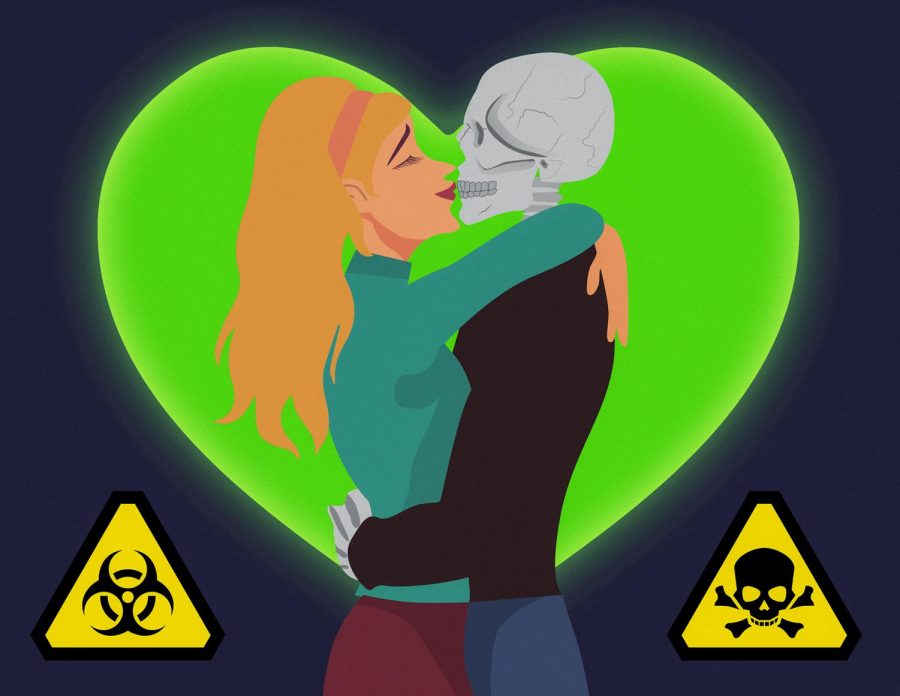Signs, plans for if relationship becomes toxic
Abuse doesn’t always include physical, can mean manipulation
April 17, 2018
When we think of unhealthy relationships, our minds almost immediately jump to violence or sexual assault. However, unhealthy relationships don’t have to leave any physical marks to be harmful.
Vanessa Corwin, a sexual assault advocate at Alternatives to Violence on the Palouse who works with college students in the area, defined an unhealthy relationship as one where control is unequal. This imbalance can lead to coercion and manipulation without either party realizing the damage being done.
Most relationships start healthy. Many people experience the honeymoon phase where everything is fun and romantic. But, when one party tries to gain control through manipulation, coercion and isolation, the relationship turns toxic.
It can be hard to realize a relationship has become toxic, Corwin said. All the red flags could be invisible through rose-colored glasses, while deep down they cause real damage.
Signs of a toxic relationship include one party acting jealously, isolating their partner from spending time with others, or even something as simple as not putting effort into the relationship, Corwin said. Making the relationship feel one-sided can be a form of manipulation, because it puts one of the people in the relationship in a position of feeling powerless to save it.
Leaving a toxic relationship can pose its own challenges. Someone may be holding on because they believe they love the person manipulating them. These individuals may have had their self-esteem torn down by the abuser, and they may not believe they have the ability to move on, Corwin said.
If a relationship is toxic to the level of danger, make sure a safety plan is in place before attempting to leave. Letting people around you know what you plan to do can provide you with a support system and a feeling of safety.
If a friend is involved in a toxic relationship and you want to help, the worst thing to do is be judgmental. Judgement closes doors, Corwin said, and in these situations, the survivor needs someone to listen to them and support them, not to criticize them.








